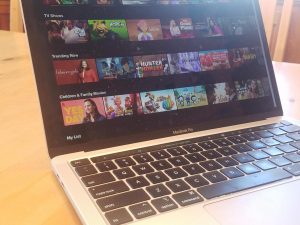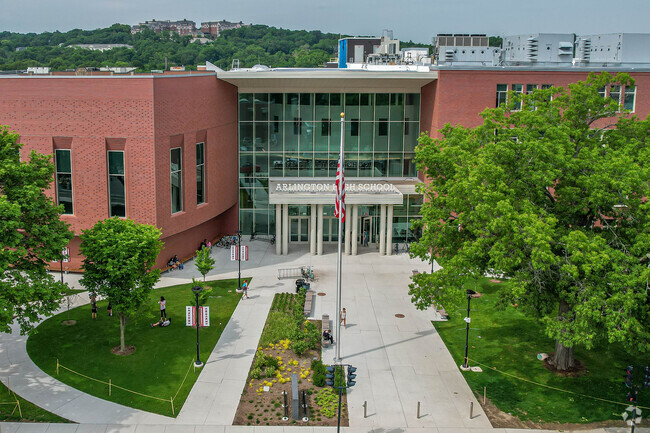The Youth of the Future Need a Chance at the Ballot Box
January 10, 2021
In America, voting isn’t just a right that you are given when you turn eighteen. It isn’t just a right that you can exercise when you need it; it’s a rite of passage, a tool you’re gifted for your civic belt. For years, voting has been the subject of various constitutional amendments, undergoing dramatic changes that have affected every American. Now, sixteen-year-olds want in.
In America, 16-year-olds are almost adults. They can work, pay taxes, and can be tried as adults for certain crimes. But the largest difference between these minors and 18-year-olds is that they do not have representation in government. This is a prime example of being affected by the government without having a say.
18-year-olds are only two years older than 16-year-olds, but society immediately views them as fully mature citizens. These 18-year-olds are the people who will uphold their civic duties by participating in things like jury duty. Small actions like this prove that teenagers are capable of making fully informed decisions on a wide range of topics such as voting and taxes. But even though younger teenagers have the answers to gaining access to the ballot, most of them are not given the chance to show that they are capable of holding civic power.
Currently, 18 U.S. states have already given under-18-year-olds voting “learners permits”. Places like Connecticut, New Mexico, and Ohio have awarded 17-year-olds a unique opportunity; voting underage in the primaries. These states have mandated an agreement that says that 17-year-olds who will be 18 by the general election can vote in the primaries. According to the National Conference of State Legislatures, “States may take this action to encourage voter participation among young people, or because primaries can be seen as part of the general election process.” A promising sign that this new law will be successful is that it has not yet been repealed from any of the 18 participating states.
Sixteen-year-olds should be able to vote. The United States of America was built on the idea that representation is necessary. It is built on the idea that people should not be subject to laws set by the government if they don’t have a say in the government. But by prohibiting young people from casting a vote and voicing their opinions, they are being limited in the same way that the colonists were over 200 years ago.
Young people are not irresponsible and uninvolved. They protest peacefully, promote peace and justice online, and go about their everyday lives while being informed citizens. In September of 2019, millions of young people from around the world marched peacefully in marches against climate change with signs reading, “There Is No Planet B” and “Save the Earth.” They were peacefully and responsibly trying to create change in a world where their voices have arguably little impact. These marches are a cardinal example of why young adults should be able to vote. Without an official and recognized way to create change, teenagers turned to a right guaranteed in the Bill of Rights; they used their right to petition the government so that they could be seen and heard. They demonstrated how they can make decisions maturely, and that they have a clear understanding of what rights they possess so that they can be responsible citizens that use their civic rights. By peacefully protesting, these young people clearly illustrated how if they could vote, it would be used as an accountable way to participate in society.
Older teenagers have also been conscientious and upstanding promoters of health and safety throughout the entire COVID-19 pandemic. When the world turned to mask-wearing as a way to stay safe, minors started making masks for people around their neighborhoods so that they could encourage their communities to take care of themselves. They stopped going out and started to practice social distancing, making sure that individually, they would not contribute to virus spread. However small their measures have been, they engaged in sensible and humble steps to support frontline workers. They have followed the guidance of older officials and become informed so that they can keep everyone safe. If these mature and responsible citizens were given a voice on the ballot, they would be able to motivate all of the younger generations to be moral and well-informed residents.
But although representation for young people is necessary, critics of a lower voting age cite the fact that 16-year-olds have little life experience. At their age, they are still maturing rapidly, and many people argue that these teenagers are prone to acting spontaneously and without solid reasoning. Critics are also wary because in the United States voter turnout is low, especially in the 18-29 age group. That said, in Takoma Park, Maryland, 16 and 17-year-olds are the ones dominating the polls. In a 2013 election in Takoma Park, people over the age of 18 were reported to have a small voter turnout rate of 8.5% in local elections. Meanwhile, 16 and 17-year-olds had a turnout of 17%. Voters under 18 have a turnout rate double that of people over 18. When they were given the chance to vote, minors in Takoma Park did not pass up the opportunity, recognizing that voting was when their opinions would officially count. Compared to their older counterparts who have more life experience and power in the government, they seized an occasion to show that when granted a civic right, they have the maturity and sense of responsibility required to vote for what they believe is right.
Sixteen-year-olds and teenagers everywhere have listened. They have made decisions backed by facts and have not acted impulsively. They understand that their world is being threatened and know that action originating from themselves is imperative. Now is the time to grant the younger generation the right to vote. With the experience that they gain now, they are already set onto a path that will let them be an active part of the government. And, with their opinions officially accounted for, they are more likely to vote in the future, creating a society full of active and empowered voters.
All views expressed in this article belong to the journalist and do not necessarily reflect the views of the Ottoson Insider.









Annika Ziegler • Jan 13, 2021 at 8:26 pm
This is very eloquent and powerful, the writer should be very proud.